What does trust mean in 2025?
Trust has a profound impact across nearly every aspect of human interaction, from personal relationships to large-scale societal systems.
From our interpersonal relationships, to workplaces, in commerce, to social cohesion, trust is a vital aspect to the human condition.
Our relationship to trust is ever evolving – and impacted by things like technological developments, health of the economy, and geopolitical tensions.
In the 2025 Edelman Trust Barometer, an annual global survey conducted by the public relations firm Edelman to measure the public’s trust in various institutions, 2025 marks a “profound shift to acceptance of aggressive action, with political polarisation and deepening fears giving rise to a widespread sense of grievance.”
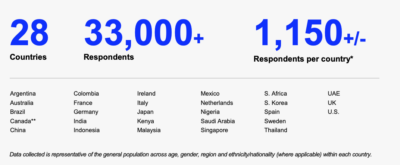
Running since 2000, the Barometer measures trust in business, government, media, and NGOs across nearly 30 countries. Each year it surmises the findings with a theme, with 2025 titled “Trust and the Crisis of Grievance”.
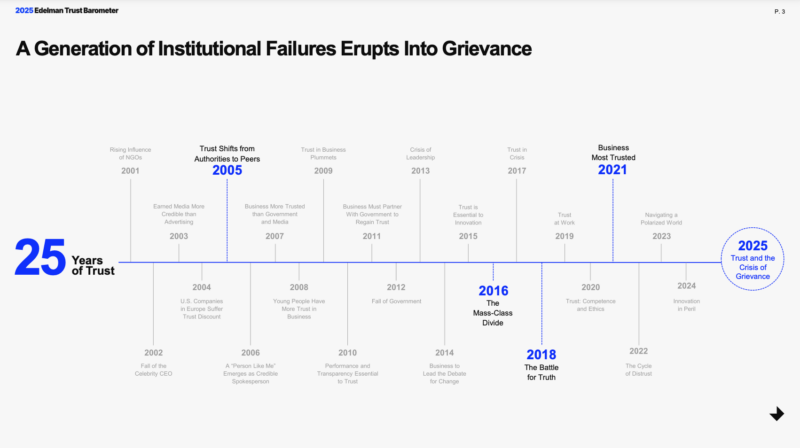
It also takes into account the world events that have impacted trust, including government backed invasions, financial crashes, and the pandemic.
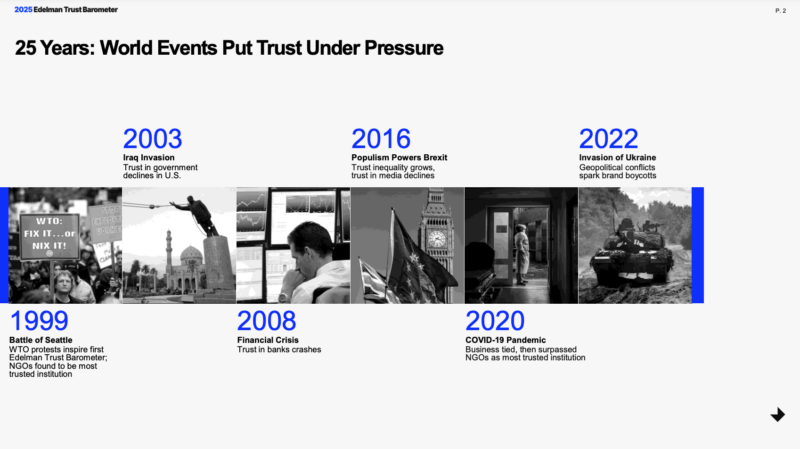
The key takeaways from the 2025 report included:
- 61% globally have a moderate or high sense of grievance, which is defined by a belief that government and business make their lives harder and serve narrow interests, and wealthy people benefit unfairly from the system.
- To bring about change, 4 in 10 would approve of one or more of the following forms of hostile activism: attacking people online, intentionally spreading disinformation, threatening or committing violence, damaging public or private property. This sentiment is most prevalent among respondents ages 18-34 (53 percent approve of at least one).
- Nearly two thirds of respondents worry about experiencing prejudice, discrimination, or racism – up 10 points in the last year and with significant increases across countries and demographics.
- Only 36 percent of respondents believe that things will be better for the next generation.
- Those with a high sense of grievance see business as 81 points less ethical and 37 points less competent than those with a low sense of grievance, and they believe business is not doing enough to address key societal issues.
Post our recent election cycle, Australia has notably dropped from a neutral spot on the trust index in 2024, to distrust in 2025.
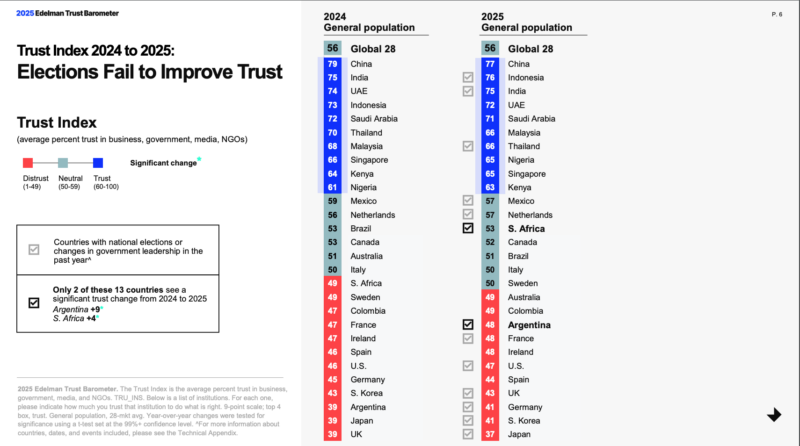
The data also confirmed that distrust in government, corporate and media leaders and their ability to tell the truth is at an all time high.
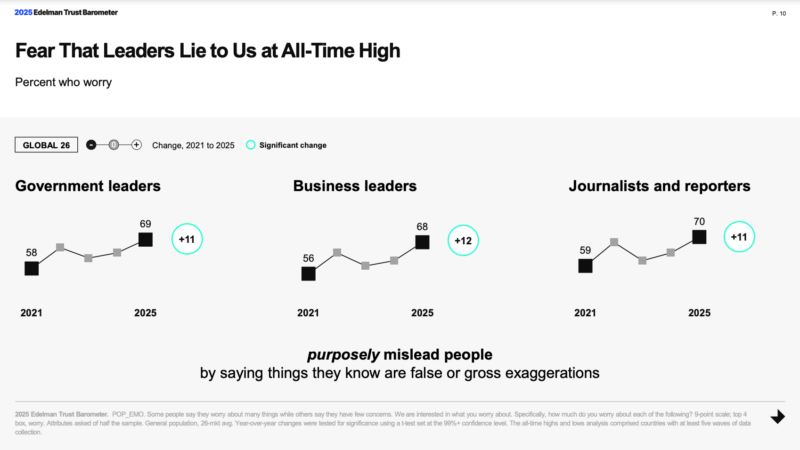
However the OECD Survey on Drivers of Trust in Public Institutions from 2023 indicates that Australia is generally a pretty trusting community. The results revealed that 46% of Australians reported high or moderately high trust in the federal government, above the OECD average of 39%.
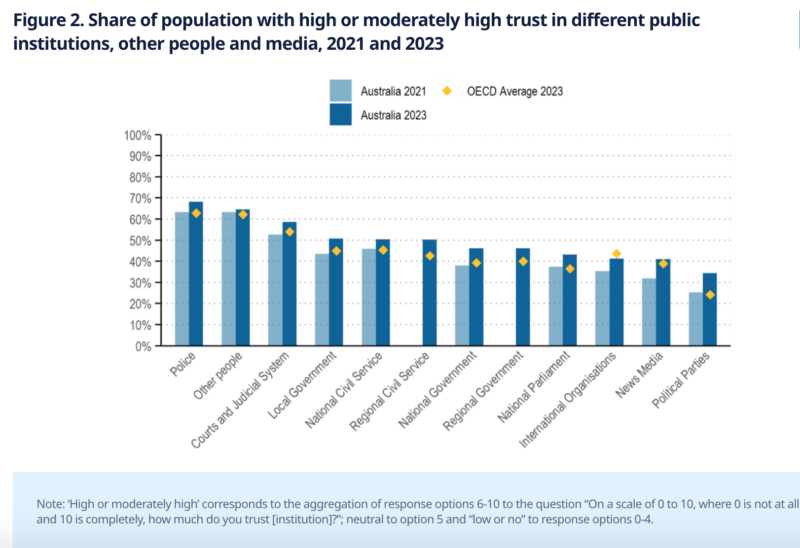
The findings revealed that Australians place more trust in the police (68%), other people (65%), and courts and the judicial system (59%) than in the federal government (46%) – congruent with most OECD countries. Around half of the population reports high or moderately high trust in the local government (51%) and the federal civil service (50%). Although above OECD averages, political parties (34%) and news media (41%) are the least trusted institutions in Australia.
When it comes to our fellow community members, Australians have a healthy trust in each other – sitting at a robust 64.6%:
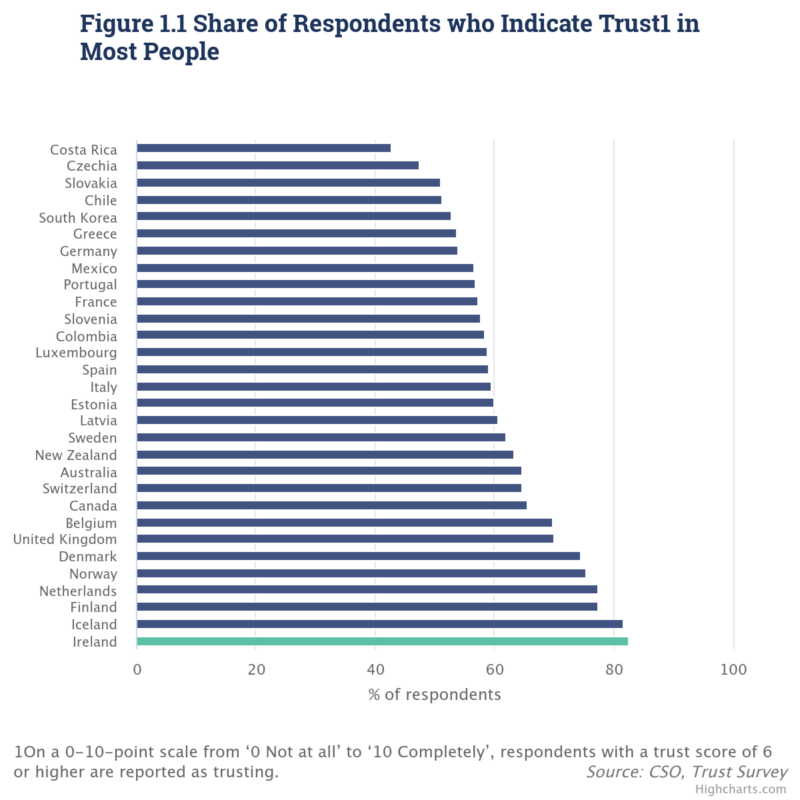
So why is trust so important?
Trust reduces friction, uncertainty, and risk. Whether you’re building a team, running a business, leading a community, or developing technology, trust is not just helpful; it’s foundational. It helps productivity, innovation, stability, social cohesion, and economic growth.
Without it, systems break down.
The best ways to build trust as a brand or organisation is through:
Consistency and reliability
Maintain a consistent tone, quality, and visual identity across all platforms. Make sure to deliver your products, services, and content as promised—on time and to standard.
Transparency
Be honest about pricing, policies, and product limitations. When you make a mistake, own up to it quickly and explain how you’re fixing it.
Delivering real value
Offer useful, relevant content, not just promotions. Think blogs, guides, FAQs, webinars. Design products or services that genuinely improve the customer’s life or business.
Use social proof
Let satisfied customers speak for you, by showcasing real-world results through customer posts and feedback.
Be human
Share stories, behind-the-scenes content, and team features to give the human face of your brand. When engaging with customers, be authentic. Respond to comments, DMs, and feedback in a genuine tone, not just canned responses.
Customer-centric mindset
Listen actively to your customers via surveys, feedback forms, customer data, and market research. Make sure to actually implement changes based on your findings.
Want to know how Square Holes can help you build trust with your customers/audience? Head here.




